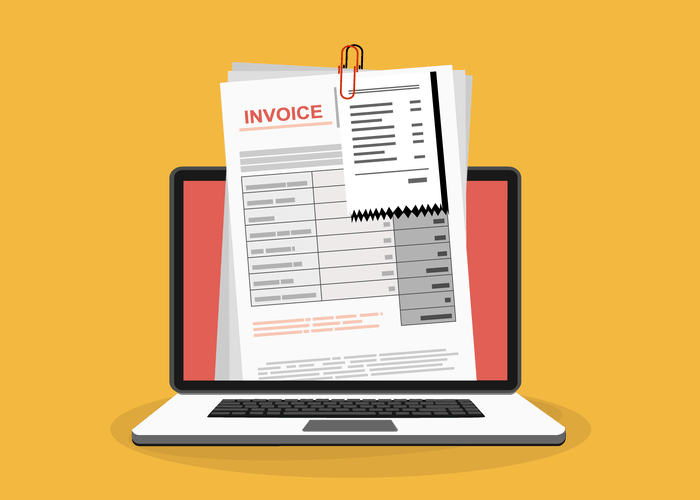
Small business owners typically wear multiple hats and have limited time to dedicate to bookkeeping and accounting. Bookkeepers and accountants collaborate to leverage technology and streamline financial processes. They explore and implement accounting software and tools that enhance efficiency, accuracy, and data management. Hiring an accountant becomes crucial if the business undergoes audits or due diligence processes. Accountants ensure that financial records are in order, conduct internal audits, and prepare the necessary documentation.
Financial Planning and Analysis
Instead of crunching numbers, you’ll be free to focus on other tasks that are necessary to run or scale your business. An accountant can also ensure greater accuracy and may be more knowledgeable about the tax code and reporting requirements. Remember that if you have employees, you’ll also need to account for payroll tax. If you’re unsure about your tax obligations, you may want to talk to a professional accountant or tax expert for advice. There are three financial statements that all small businesses should consider creating.
Single Step vs Multi Step Income Statements
Accountants and bookkeepers collaborate to establish internal controls and mitigate financial risks. They assess the effectiveness of existing rules, identify gaps or weaknesses, and implement necessary improvements. They collaborate with management to set financial goals, allocate resources, and monitor performance against the budget. Enroll in a business administration program and maximize your professional potential. Business professionals supervise staff to enhance organizational goals, resources, and time. They work in highly collaborative environments where clear and courteous communication is critical.

Company

Regulators also rely on accountants for critical functions such as providing auditors’ opinions on companies’ annual 10-K what is business accounting filings. In short, although accounting is sometimes overlooked, it is absolutely critical for the smooth functioning of modern finance. When the client pays the invoice, the accountant credits accounts receivables and debits cash. Double-entry accounting is also called balancing the books, as all of the accounting entries are balanced against each other. If the entries aren’t balanced, the accountant knows there must be a mistake somewhere in the general ledger.
- These adjustments allow others within the business to understand those projections’ potential impacts in relatable terms.
- Many small businesses and larger companies prepare multi-step income statements.
- However, certain aspects can contribute to stress in bookkeeping, such as tight deadlines, high transaction volumes, and the need for precision in recording and reconciling financial data.
- For example, a business checking account can come with invoicing software integrations to make bill payments easier and save time on reconciliation.
- Their advanced knowledge and expertise in accounting principles, financial analysis, and tax regulations make them highly valued professionals, which can result in higher earning potential.
- Accurate bookkeeping provides a reliable foundation of financial information for a company.
Hence, accounting records are made only after the goods have been physically received. As a case in point, the devaluation of the US dollar may have no https://www.facebook.com/BooksTimeInc/ financial implication for a small trader who has no import or export dealings. If a transaction or an event does not have a financial implication, it will not be recorded in the accounting books. The amounts, figures, and other data in the financial reports have meanings that are useful to the users.
- Check out our guide on how to establish a small business so you can start turning a profit ASAP.
- Bookkeepers and accountants handle sensitive financial information and have access to confidential data.
- They must be comfortable working with numbers, performing calculations, and analyzing financial data to identify patterns, trends, and discrepancies.
- As you review your accounting strategy, consider your company’s financial goals.
- Bookkeepers handle payroll-related tasks, including calculating employee wages, deducting taxes and benefits, preparing payroll reports, and ensuring compliance with employment laws and regulations.
- And generally, no matter the plan or price, accounting software is more reliable than by-hand spreadsheet accounting.
- They advise management on investment decisions, capital structure, cost management, and profitability analysis.
If your business ever grows to the point where you need to hire an accountant full-time, most of their time will be taken up by managerial accounting. You’ll be paying them to produce reports that provide regular updates on the company’s financial health and help you interpret those reports. Preparing the company’s annual financial statements this way is called financial accounting. If you’re looking to hire a financial accountant, start with looking into how much an accountant costs.

Accountant vs. CPA vs. Tax Pro

Many of these professionals worked for their companies for multiple decades. On numerous occasions, one individual was solely responsible for the accounting and financial reporting functions of the business. Moreover, the exiting staff had not adequately transferred their expertise to document and preserve critical knowledge, leaving these businesses vulnerable to significant operational disruption. Financial reports are primarily in 30-day increments and it is imperative small businesses know their financial position far more often than that.
Setting Up Accounting for Small Businesses
New Jersey Society of Certified Public Accountants CEO and Executive Director Aiysha Johnson recently answered some questions about the state of the accounting profession. The following conversation feature questions and answers edited for length and clarity. You can open and manage your account online, or via the app, whenever you need.
Continuous Learning and Professional Development
Cloud-based accounting software can accommodate expanding transaction volumes, additional users, and changing business https://www.bookstime.com/ needs. This scalability ensures that bookkeeping and accounting practices can keep pace with business growth without requiring significant infrastructure investments or operational disruptions. This enables more accurate financial forecasting, trend analysis, and risk assessment.
Leave a Reply